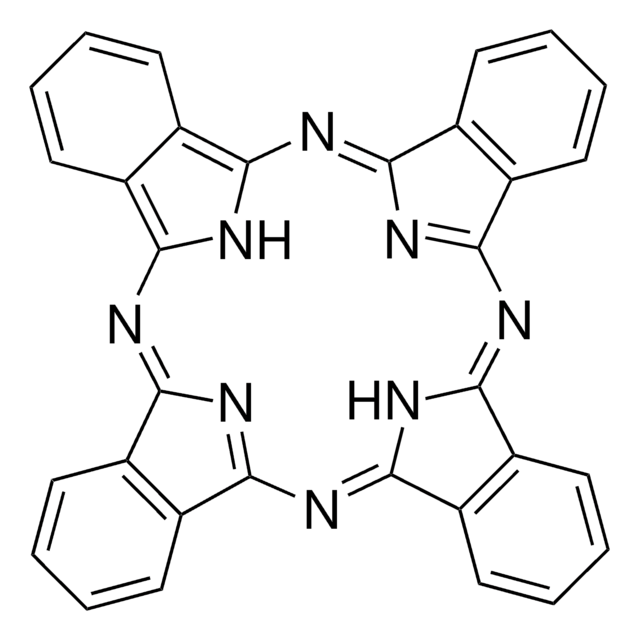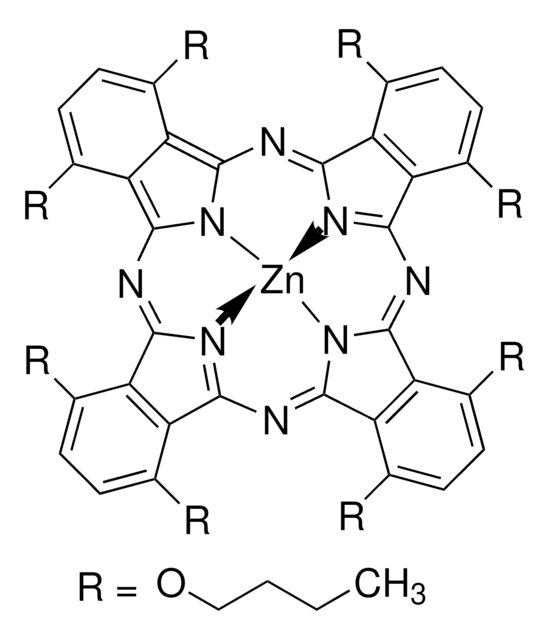About This Item
Recommended Products
composition
Dye content, 95%
Quality Level
λmax
712 nm
SMILES string
c1ccc2cc3c4nc(nc5[nH]c(nc6nc(nc7[nH]c(n4)c8cc9ccccc9cc78)c%10cc%11ccccc%11cc6%10)c%12cc%13ccccc%13cc5%12)c3cc2c1
InChI
1S/C48H26N8/c1-2-10-26-18-34-33(17-25(26)9-1)41-49-42(34)54-44-37-21-29-13-5-6-14-30(29)22-38(37)46(51-44)56-48-40-24-32-16-8-7-15-31(32)23-39(40)47(52-48)55-45-36-20-28-12-4-3-11-27(28)19-35(36)43(50-45)53-41/h1-24H,(H2,49,50,51,52,53,54,55,56)
InChI key
LKKPNUDVOYAOBB-UHFFFAOYSA-N
Looking for similar products? Visit Product Comparison Guide
Storage Class Code
11 - Combustible Solids
WGK
WGK 3
Flash Point(F)
Not applicable
Flash Point(C)
Not applicable
Personal Protective Equipment
Certificates of Analysis (COA)
Search for Certificates of Analysis (COA) by entering the products Lot/Batch Number. Lot and Batch Numbers can be found on a product’s label following the words ‘Lot’ or ‘Batch’.
Already Own This Product?
Find documentation for the products that you have recently purchased in the Document Library.
Customers Also Viewed
Our team of scientists has experience in all areas of research including Life Science, Material Science, Chemical Synthesis, Chromatography, Analytical and many others.
Contact Technical Service









